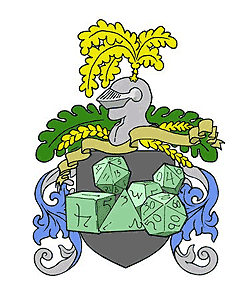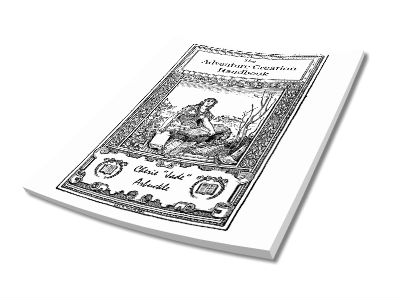GMing can be an all-consuming task. Players outnumber GMs, so we often get put in a situation where our group will say “We want to play [fill in new game here]. Will you run it?” But sometimes, even if you primarily GM, you’ll get a chance to actually sit in the player’s chair for a change.
Sitting the player’s chair can be a challenge for someone who primarily GMs. We’re so used to having the final say in game matters, that we tend to (usually unintentionally) act as if we’re in charge of this game. This tends to lead to bad feelings with rest of the group and the newly-minted player returns to her GM screen, vowing to never set foot out from it again.
That’s a shame, because GMs can offer a lot to a game when they play. They often have great ideas for overcoming obstacles (after all, they’re used to setting them), and can be a source of great help to the current GM, especially if he’s new to that side of the table. Plus, it’s good for a GM to remember what it feels like to be a player, from time to time.
Below are some guidelines on how to behave when it’s someone else’s turn in the GM chair:
- Never give GMing advice unless specifically asked. GMing has a steep learning curve. It takes months (do I dare say “years”?) to learn to manage all the tasks required to run a good game; this can only come with practice. While it’s hard to watch someone struggle through learning to GM, it’s necessary. He has to learn, just like you did. Giving unsolicited advice just upsets the other GM and is often interpreted as a vote of no confidence in his GMing ability.
- If you find yourself saying “In my game…,” stop talking. Unless it’s during a break and you’re relating a story about something funny that happened in your game, these are fighting words. Remember, this is not your game. Every GM is entitled to run her game her own way; just because it’s different from yours doesn’t make it bad. Acknowledge (to yourself) that it’s going to feel strange for a little while, but reserve judgment for several game sessions. If she’s doing something you just can’t stand, use the standard player solution—talk to her, or find a different game.
- If you must talk to the GM about the way he runs, remember you’re the player. Don’t tell him how you’d do it differently (unless he asks). Just say something along the lines of “I’m having a real difficulty with the way [thing that bothers you] is handled. Is there a particular reason for it being that way, or can we maybe try something else?” Focus on the specific thing that bothers you, not on his whole GMing approach.
- Try to keep GM information out of play. It’s going to be tough; when you’ve been GMing for any length of time, you know things that even experienced players don’t. So before you exploit the weakness of that monster’s special attack, ask yourself if your character would even know about the weakness in the first place. Be honest. If the answer is “No,” then use only what your character would know.
- Don’t overwhelm your GM. When you’re used to spending hours in preparation for a game, it can seem like you’re slacking off when you’re only a player. Many GMs I know (including me) then to still put in that time, often without realizing it. Since you’ve only got one small section of the game to work on—your character—you tend to over develop that section. Unless you clear it with your GM first, it’s not fair to dump a 25 page character history on her and expect her to read it all before the next game session. Remember, she’s got more than just your character to deal with.
- Don’t assume that just because you like something, that your GM will too. And visa versa, if you hate something, don’t assume your GM will also hate it. Some GMs love getting 20 pages of blue-booking between game sessions, others will barely have time to skim the first page. Find out your GM’s likes and dislikes.
- Take time to learn this group’s culture. Every game group has their own rituals and rules of behavior. If you’re coming into an established group, take time learn their traditions and standards of behavior. If everyone chips in to buy the GM pizza, by the third session, you should be ready to drop your share in the pot.
- Cut yourself some slack. It takes time to get used to being a player again. Treat yourself like you’d treat any brand-new player you’d have in your game. In many ways, that’s exactly what you are, especially if you haven’t played in years.
- Be the kind of player you’d want to have in your game. That’s basically what this all comes down to. If you’re supportive, helpful in a player sort of way, polite, and respectful, the rest of your group should be willing to overlook any gaffs on your part.
(This is an excerpt from my upcoming book: The GM’s Field Guide to Players, tentatively scheduled to come out in November.)
[photo courtesy of JDHancock courtesy of Flickr Creative Commons]
Related articles
- Players: What Do You Want Your GM to Know About You? from Evil Machinations (rpggm.com)
- GM’s Toolbox – Introduction (campaignmastery.com)
- GM Growth: Listen to What you Say from Troll in the Corner ” Role Playing Games (trollitc.com)
- [GMing] Let Go Of Your Ego from Life and Times of a Philippine Gamer (philgamer.wordpress.com)
- JiB on GM’ing 7: GM’s are Players Too from The Douchey DM (doucheydm.com)















